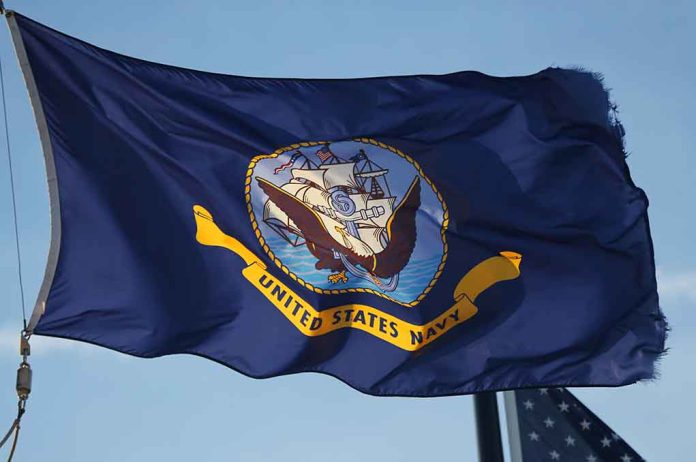
The U.S. Naval Academy’s race-based admissions policy faces a legal challenge in federal court, potentially reshaping military academy admissions nationwide.
At a Glance
- Students for Fair Admissions (SFFA) is challenging the Naval Academy’s use of race in admissions.
- The trial, held in Baltimore, could significantly impact military academy admissions policies.
- The Navy defends its policy, arguing racial diversity is essential for national security.
- This case follows SFFA’s successful challenge to affirmative action in civilian universities.
Legal Battle Unfolds in Baltimore
A federal trial challenging the U.S. Naval Academy’s use of race in admissions has begun in downtown Baltimore. The lawsuit, brought by Students For Fair Admissions (SFFA), an anti-affirmative-action group, argues that the Naval Academy’s policies discriminate against white and Asian applicants. This trial, expected to last two weeks, could have far-reaching implications for military academy admissions across the country.
The case mirrors a similar ongoing legal battle at the U.S. Military Academy at West Point, also initiated by SFFA. Both parties involved in the Naval Academy trial have declined to comment, underscoring the sensitive nature of the proceedings.
Naval Academy’s Defense
The Naval Academy is vigorously defending its holistic admissions approach, emphasizing that race and ethnicity are considered among multiple factors and not in isolation. U.S. officials argue that diverse leadership is crucial for military cohesion and national security. Attorney Joshua Gardner, representing the Naval Academy, stated in court:
The Biden administration supports the Naval Academy’s position, arguing that the military needs to consider race in admissions to ensure a diverse officer corps. This stance aligns with a friend-of-the-court brief from military leaders asserting that diversity in military academies is crucial for performance and operational effectiveness.
SFFA’s Arguments
SFFA, the group behind the successful 2023 Supreme Court cases against Harvard and the University of North Carolina, contends that the Naval Academy’s race-based admissions violate the equal protection clause of the Fifth Amendment. SFFA attorney Adam Mortara argued in court:
SFFA also questions the measurability of the need for diversity at the Naval Academy and argues that the interest of enhancing military functioning through racial preferences cannot be meaningfully measured or reviewed by courts.
Implications and Potential Outcomes
The outcome of this trial could have significant ramifications for military academy admissions policies nationwide. U.S. District Judge Richard Bennett, appointed by George W. Bush, is presiding over the case. The Supreme Court’s June 2023 decision, which found similar affirmative action programs in civilian universities unconstitutional, did not explicitly address military academies, citing potentially distinct interests.
As the trial unfolds, both sides will present their arguments, with the Naval Academy seeking to demonstrate that its race-conscious admissions policies are necessary for national security and military effectiveness. The decision in this case could set a precedent for how military institutions balance diversity goals with constitutional requirements in their admissions processes.
Sources:
- Naval Academy faces trial over race in admissions. What you should know.
- Affirmative action lawsuit: US Naval Academy says race-based admissions necessary
- U.S. Naval Academy, Affirmative Action Foe Square off at Baltimore Trial
- Naval Academy to defend race-conscious admissions policies at trial
- Affirmative action lawsuit: US Naval Academy says race-based admissions necessary
- Anti-affirmative action group challenges US Naval Academy’s admissions policy
- US Naval Academy Defends Race-Conscious Admissions Policies at Trial
- U.S. Naval Academy, affirmative action foe square off at Baltimore trial







